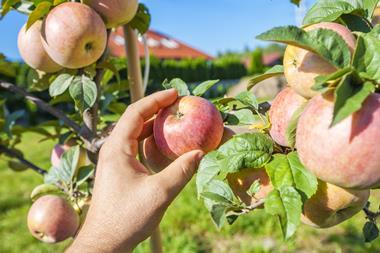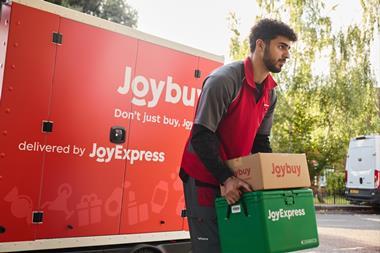Asda has pleaded for more collaboration between retailers to help save the planet in the wake of huge media announcements on the environment from its rivals.
On Thursday Tesco chief executive Sir Terry Leahy unveiled far-reaching plans to improve the supermarket's green credentials, while earlier in the week his counterpart at Marks & Spencer, Stuart Rose, launched a 100-point plan.
"The whole green agenda has become central to competitiveness and everyone is trying to get one over on each other as customers become more aware of their own carbon footprint," said Asda environment manager Ian Bowles - before Tesco revealed its full plans. "But climate change is not a competitive issue, it's a moral obligation."
Major retailers and suppliers, such as Asda, Tesco, Sainsbury's, Waitrose, Unilever and PepsiCo, met last year to discuss initiatives on which the industry could work together to achieve environmental sustainability. Leading players will meet next month to form an action plan.
"We hope we can continue working together," said Bowles. "We are still going into it in good spirit to share what we have learnt."
Tesco said it too wished to remain part of collaborative discussions and that it would be sharing learnings on phasing out HFCs in refrigeration. "I believe Tesco's unique relationship with customers gives us an unrivalled opportunity and responsibility to lead this revolution," said Sir Terry.
Over the next five years Tesco plans include reducing the amount of CO2 used in its distribution network to deliver a case of goods by 50%; investing £500m on low-carbon technologies; and measuring the carbon footprint on every product it sells and printing this information on packaging.
It will reduce the cost of going green for customers by halving the price of energy-efficient light bulbs, develop stronger energy efficiency labelling for electricals and give incentives to buy energy-efficient products.
The M&S plan includes labelling air-freighted food, prioritising local sourcing and trialling the use of food waste to power stores.
On Thursday Tesco chief executive Sir Terry Leahy unveiled far-reaching plans to improve the supermarket's green credentials, while earlier in the week his counterpart at Marks & Spencer, Stuart Rose, launched a 100-point plan.
"The whole green agenda has become central to competitiveness and everyone is trying to get one over on each other as customers become more aware of their own carbon footprint," said Asda environment manager Ian Bowles - before Tesco revealed its full plans. "But climate change is not a competitive issue, it's a moral obligation."
Major retailers and suppliers, such as Asda, Tesco, Sainsbury's, Waitrose, Unilever and PepsiCo, met last year to discuss initiatives on which the industry could work together to achieve environmental sustainability. Leading players will meet next month to form an action plan.
"We hope we can continue working together," said Bowles. "We are still going into it in good spirit to share what we have learnt."
Tesco said it too wished to remain part of collaborative discussions and that it would be sharing learnings on phasing out HFCs in refrigeration. "I believe Tesco's unique relationship with customers gives us an unrivalled opportunity and responsibility to lead this revolution," said Sir Terry.
Over the next five years Tesco plans include reducing the amount of CO2 used in its distribution network to deliver a case of goods by 50%; investing £500m on low-carbon technologies; and measuring the carbon footprint on every product it sells and printing this information on packaging.
It will reduce the cost of going green for customers by halving the price of energy-efficient light bulbs, develop stronger energy efficiency labelling for electricals and give incentives to buy energy-efficient products.
The M&S plan includes labelling air-freighted food, prioritising local sourcing and trialling the use of food waste to power stores.



















No comments yet